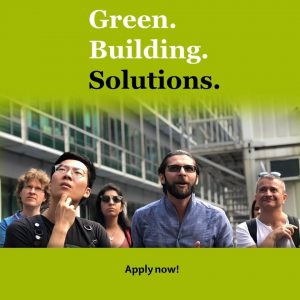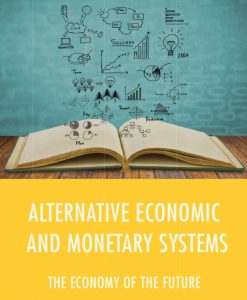Overconsumption, exploitation of nature and a climate crisis: The current state of the world is well known and has been widely discussed. Instead of just adding another discussion of these problems, the Summer School program “Alternative Economic and Monetary Systems” offers real and long-term solutions. It focuses on alternative concepts for monetary systems as well as our growth-based economy and shows: There are many alternatives.
400 economic crises in just 37 years
Between 1970 and 2007 alone, the world faced over 400 systemic economic crises. Among those 400 were 145 sector-wide banking crises, which led to high levels of unemployment. Meanwhile, the 500 biggest enterprises control 52% of the global gross domestic product (GDP), but employ only 1,8% of the global workforce. Income and wealth inequalities have been growing more and more over the last few years. The rich get richer and the poor get poorer.
Europeans live 18 years longer than Africans
Inequality exists not only between the haves and have-nots, but also between the regions of the world. The effects of the economic system primarily affect countries of the global south, leading to even more worldwide inequality. This inequality even determines how long we live. For example, Europeans have an average life expectancy of 18 years higher than people living in Africa.
30-50% of agricultural land destroyed
At the same time, our globalised capitalist economy of profit maximization leads to overconsumption, exploitation of nature and plays a significant role in climate change. 30 – 50% of agricultural land has already been transformed by humans to maximize their profits. Especially in developing countries, land and water grabbing are pressing problems. As a result, 3.5 million people die per year due to a lack of drinking water.
Time for a system change
Historic evidence shows that inequality fuels economic instability and creates imbalances in political influence and control. In the light of the current state of the world one might start to wonder whether there is a solution for these problems. This leaves the question: What is the actual leeway?
Are there no alternatives?
Many propositions for economic reform have been made over the years, proving that there is a great need for a new economic system. An academic program in Vienna actually educates about the available alternatives in three thematic areas: democratization of the economic system, reforming the financial system and ecological transformation.
Alternative Economic and Monetary Systems: a long-term solution
Alternative Economic and Monetary Systems (AEMS) is an academic Summer School that offers a new, long-term approach to actually provide a solution. AEMS focuses on alternative and innovative concepts for monetary systems and our growth-based economy. It teaches complex relationships between the environment, society and the economy. The program provides an insight into possible reform approaches. This enables us to have a level-headed discussion about economic and monetary reforms while asking, “What is our leeway?”
The main intention behind the creation of the Summer School program was to use a positive approach to the field of economic alternatives and to discuss topics like:
- What role does the economic system play in the climate crisis
- Possible solutions for a financial crisis caused by COVID-19
- Alternatives to our system
The online lectures cover a variety of topics, ranging from the reform or re-definition of money, a reform of financial markets, all the way to the reduction of resource consumption.
The modules enable a deeper understanding of complex interrelationships:
The role of our economic system in the climate crisis
Our economic system exploits natural resources and has played a significant role in climate change. What many people do not know, however, is that the financial system has decisively contributed, too. The unregulated banking system, speculations and the dynamics of compound interest supports the exploitation of natural resources. In addition, it supports the systematic redistribution of wealth to the richest part of the population. Module 1 gives an overview of the current global socio-economic situation and discusses what makes a transformation necessary.
We need monetary reform
Between 1970 and 2007 alone, the world faced over 400 systemic economic crises, among those 400 were 145 sector-wide banking crises. Module 2 offers a look at the entity “money”: What it is, how it affects us and how it can be transformed. AEMS includes the role of international banking systems, financial markets, system boundaries, climate change and ethics in the monetary system. In this module, alternatives, such as complementary and regional currencies are discussed, too.
Towards a social ecological economy
Module 3 is the main part of the Summer School. It focuses on the available alternatives in the three thematic areas: democratization of the economic system, reforming the financial system and ecological transformation. AEMS educates about economy of the common good and strategies of degrowth.

Summer School: Get your free ticket
Held in Vienna from 20 July to 7 August, the three week-long online course includes undergraduate and postgraduate students, as well as professionals from a variety of industries.
The Summer School Alternative Economic and Monetary Systems (Vienna, 5 ECTS, completely in English) is open to students and professionals of all fields and offers alternatives to the processes that are putting strains on our economic and eco-social boundaries. In addition to classic and new concepts from the field of economics, students will also hear presentations from natural and social sciences and discuss the actual leeway for economic and monetary reform.
The scholarship fee includes:
- Certificate of the University of Natural Resources and Life Sciences, Vienna (BOKU) for 5 ECTS
- Exclusive online access to world class experts in the field through lectures, live sessions and personal exchanges
- Access to tailored content and specialized documentation prepared by experts especially for the program
- Dedicated staff to support on all aspects and answer your queries for the whole duration of the program
- Special offer*: If you are already in Austria you can stay in one of OeAD's fully furnished student guest houses in Vienna for the whole time of the AEMS plus one additional week for free! OR:
Spend one summer week in a fully furnished student guest house in Vienna within the next two years – for free!
Apply now and get one of ten free tickets HERE.
Apart from the AEMS, there will be another another summer school program: Green Building Solutions (GBS), focusing on topics like sustainable buildings, passive houses and renewable energies.

Green.Building.Solutions. (GBS) aims at bringing world class knowledge on sustainable buildings, passive houses and renewable energies. The highlights of the program are inspiring talks by Austrian experts about sustainable architecture, urban development and planning. Students will join virtual building tours to best-practice examples, demonstrating Vienna’s best practices in low energy housing; other parts are building simulation workshops and the project work on an interdisciplinary real life case study in international teams. The “Green.Building.Solutions.” will take place online from July 18th – August 9th, 2020.
Further information and registration can be found HERE.
Applications are possible until July 12, 2020. Scholarships are available.
Participants will get an official certificate worth 5 ECTS from BOKU University upon completion of the program.


